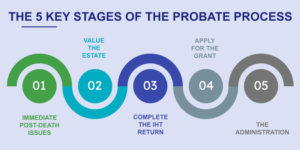what is a disposition in court
In the simplest terms, a disposition is a court’s final determination in a criminal charge. On a criminal background report, disposition may refer to the current status of an arrest or the final outcome of an interaction with the court in relation to a criminal matter. For example, was the person tried in court and found guilty, not guilty, or was the case dismissed?
When running a criminal background check candidate you’re considering for a job, dispositions give you a high-level view of any convictions, non-convictions, and pending cases that may be relevant to the position.
Here are a few common terms you might come across when reviewing dispositions, along with their meanings
common terms of disposition
Convicted: Understanding Guilty Verdicts
When a court pronounces someone as “convicted,” it means the individual has either pleaded guilty or has been found guilty after a trial. This disposition carries significant legal implications and often results in penalties such as fines, probation, or imprisonment.
Acquitted: The Not Guilty Verdict
An “acquitted” disposition is a triumph for the defendant. It signifies that the court has found the individual not guilty beyond a reasonable doubt. This verdict can stem from a lack of evidence or a successful defense strategy.
Dismissed: Termination of a Case
A “dismissed” disposition occurs when the court or prosecutor decides that the charges against the defendant should not proceed. This termination could arise due to lack of evidence, procedural errors, or other factors.
No Charges Filed/Charges Dropped: Declining Prosecution
When a case is labeled as “no charges filed” or “charges dropped,” it means that the prosecutor has chosen not to pursue the case further. This decision could result from weak evidence, lack of witness cooperation, or other considerations.
Vacated: Nullification of Guilty Pleas or Verdicts
A “vacated” disposition indicates that the court has withdrawn a guilty plea or set aside a guilty verdict. This action allows the defendant to declare they were never convicted of the crime, even though there was a previous guilty plea or verdict.
Sealed Records: Restricted Access with Public Visibility
“Sealed” records are those whose content is restricted from public access, although the record’s existence remains a matter of public knowledge. In cases involving juveniles, sealed crimes are often treated as if they never occurred, unless the records are unsealed.
Expungement: Erasing Non-Conviction Data
“Expungement” involves the removal of non-conviction information, such as arrest records, from an individual’s legal record. This disposition aims to provide a clean slate for individuals who were not found guilty.
Pending: Ongoing Investigations or Prosecutions
A “pending” disposition indicates that the case is still under investigation or prosecution. The final outcome has yet to be determined, and the accused remains in a state of uncertainty.
Diversion/Deferred Prosecution: Postponing Verdict Pending Treatment
“Diversion” or “deferred prosecution” involves delaying the verdict while the defendant completes a treatment program. If the program is successfully completed, the charges may be dismissed.
Suspended Sentence: Delayed Sentencing with Probation
A “suspended sentence” disposition occurs when the court delays sentencing pending the completion of probation or a treatment program. Fulfilling these conditions can lead to a reduced sentence or a dismissed case.
Navigating Legal Outcomes
As individuals encounter the legal system, it’s essential to grasp the potential outcomes their cases might yield. Being informed about these dispositions can aid in making well-informed decisions and seeking appropriate legal counsel.
Types of Dispositions
Preliminary Hearing
A preliminary hearing is a process where a judge determines if there’s enough evidence to proceed to trial. It’s an opportunity for the defendant’s legal team to challenge the evidence presented by the prosecution.
Deposition
A deposition involves obtaining sworn, out-of-court testimony from witnesses and parties involved. It’s a vital method for gathering evidence and can be used in preparation for trial.
Arraignment
Arraignment is the defendant’s first court appearance, where they’re informed of the charges against them and asked to enter a plea. It sets the tone for the rest of the legal process.
The Importance of Dispositions
Dispositions play a crucial role in the legal system. They help clear court backlogs, reduce legal costs, and offer a faster resolution for both parties involved.
Process of Disposition
Understanding how a disposition works involves several stages:
Investigation
Both sides gather evidence to build their case. This may include witness interviews, document collection, and expert consultations.
Pre-Trial Motions
Attorneys can file motions to request specific actions from the court, such as suppressing evidence or dismissing charges.
Gathering Evidence
Depositions, interrogatories, and document requests are common methods of gathering evidence for a disposition.
Negotiations
Attorneys negotiate to reach a mutually beneficial resolution. This could involve plea bargains or agreements on settlements.
Trial
If negotiations fail, the case proceeds to trial, where a judge or jury makes a final decision.
Ensuring a Fair Trial
A fair trial is the cornerstone of the justice system. Regardless of the disposition, it’s crucial that every defendant receives a fair and unbiased trial, ensuring that the outcome is just and reflective of the evidence presented.
The Importance of Legal Representation
Navigating the intricacies of legal dispositions requires expert guidance. Having competent legal representation can significantly impact the outcome of a case, ensuring that the defendant’s rights are protected and advocated for.
Conclusion
In the realm of legal proceedings, understanding the diverse dispositions that can arise from a criminal case is paramount. Whether it’s a guilty verdict, an acquittal, a dismissal, or any other outcome, each disposition carries its own set of consequences. Navigating these outcomes requires not only a clear understanding of the legal system but also the support of capable legal professionals.
FAQs
1. Can a vacated disposition be disclosed in background checks? Yes, in most cases, vacated dispositions can still be disclosed in background checks, though they might carry less weight than a conviction.
2. How does expungement affect employment prospects? Expungement can improve employment prospects by allowing individuals to legally state they were not convicted of a crime during job applications.
3. Can a pending case affect travel plans? Depending on the severity of the pending charges, they might affect international travel, particularly if the destination has strict entry requirements.
4. Is a suspended sentence the same as probation? While both involve delayed sentencing and supervision, a suspended sentence typically implies a more serious offense than probation.
5. What happens if a diversion program is not successfully completed? If a diversion program is not successfully completed, the original charges may proceed to trial or sentencing, depending on the court’s decision.







